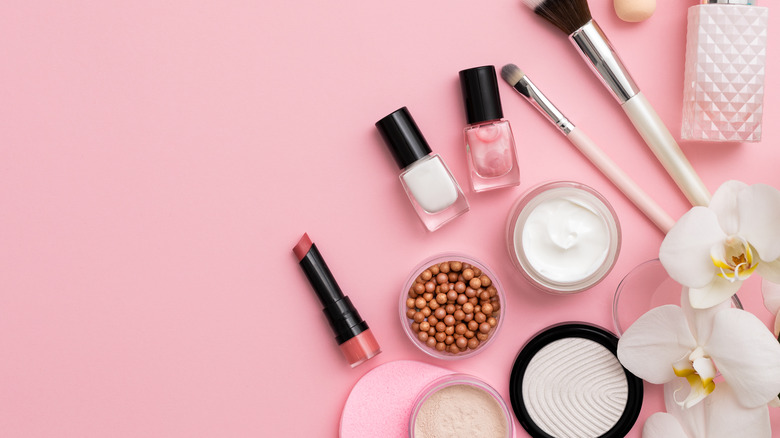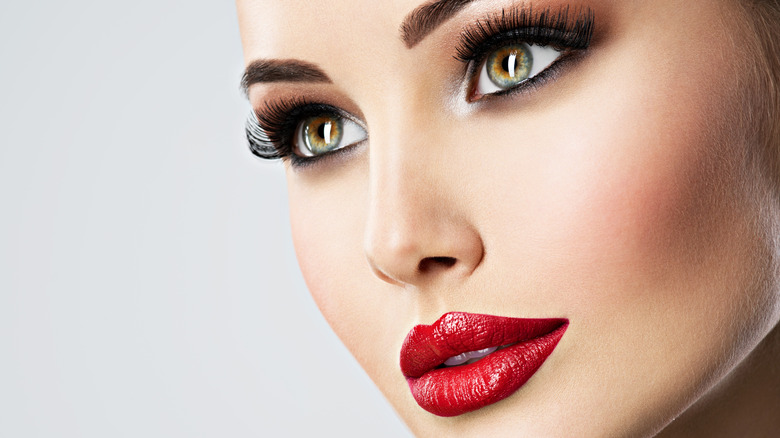Why Sharing Makeup Is Riskier Than You Think
Sharing lip gloss in the bathroom, trying your bestie's new eye shadow palette, or even borrowing bronzer are all common occurrences among makeup users — or perhaps they were prior to the COVID-19 pandemic. However, if you are still sharing your beauty products, unfortunately, you might risk spreading more than germs, as Bustle reports that sharing your makeup and other products can lead to adverse skin reactions and possibly some scary (and permanent) medical conditions. While the experts at Marie Claire deem products with pumps, spray bottles, and newly sharpened eye pencils safe to share, there are many makeup items you should completely avoid sharing.
Makeup brushes make the list of items to keep to yourself, as they touch all over the face — the eyes, the mouth, popped pimples, and even any open wounds (yuck). The experts at Bustle report that sharing makeup brushes can actually spread the bacteria that causes acne and, let's face it, no one wants to attract more acne. Dendy Engelman, a New York City cosmetic dermatologist, tells Cosmopolitan that if sharing makeup brushes is unavoidable, kill the bacteria on the bristles by spraying them with alcohol between uses, and make sure to shampoo and condition them weekly.
Never share these two beauty products
Dermatologist Dendy Engelman, explains to Cosmopolitan that, when it comes to sharing, mascara is a big no-no. The popular beauty product is one of the most contaminated with highly contagious bacteria's and viruses, like pink eye. Dr. Engelman says this is because "...each time you pull the wand out and push it back in to lube up the brush head, you push air into the dark bottle's base, feeding the aerobic bacteria that can survive in an oxygenated area."
Another product you want to hide from your friends is any lipstick, gloss, or balm, because according to Marie Claire, more people than you think live with HSV-1 (oral herpes), but may not be aware of it. Just because a person doesn't have a visible cold sore on their mouth doesn't mean they aren't carrying the virus (via Bustle). This highly transmissible and lifelong virus, as well as other viruses, can be spread easily by sharing lip products, according to Dr. Dawn Davis, a dermatologist at Mayo Clinic.


